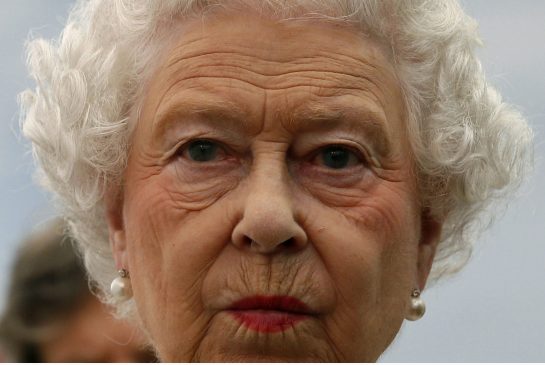Simone Topey is a Rastafarian who believes that the Queen is the head of Babylon; she says it violates her freedom of religion to be forced to take an oath to the Queen in order to become a Canadian citizen. Howard Gomberg argued that, according to his conception of Judaism, he cannot swear an oath to a person. Michael McAteer says that pledging allegiance to Canada’s head of state would violate his republican principles, and make it impossible for him work for the end of the monarchy without looking like a hypocrite. The late Charles Roach was a committed republican who never became a Canadian citizen because he believed that being forced to swear an oath to the Queen violated his Charter rights.
All went to court to have the oath struck down as unconstitutional. On Wednesday, all were told by the Ontario Court of Appeal that they have misunderstood the nature of Canada’s Constitution, the role of the Queen as head of state, and the meaning of the oath.
To take the oath does not mean that you are a monarchist. It means that you recognize and accept Canada’s system of democratic, rights-based government, which the Crown symbolizes. That constitutional system includes the absolute right to advocate and work for the rewriting of the oath – and even to bring about the end of the monarchy itself.
When new citizens swear an oath to the Queen, they are not promising to personally serve an 88-year-old woman who lives in Buckingham Palace. As Ontario Court of Appeal Justice Karen Weiler put it on Wednesday, “the oath to the Queen of Canada is an oath to our form of government, as symbolized by the Queen as the apex of our Canadian parliamentary system of constitutional monarchy.”
The Citizenship Oath, which new citizens take, reads as follow: “I swear (or affirm) that I will be faithful and bear true allegiance to Her Majesty Queen Elizabeth II, Queen of Canada, Her Heirs and Successors, and that I will faithfully observe the laws of Canada and fulfil my duties as a Canadian citizen.”
To say “the Crown” or “the Queen” is to use a kind of constitutional shorthand. It’s why, when a person is accused of a crime, they are prosecuted by “the crown.” That job is done by prosecutors – or as we call them in Canada, “crowns.” A court case involving the government and Ms. Smith will be “R. v. Smith” – the “R” stands for “regina,” the Queen. The Queen may be a person, but her office is a figurehead and symbol of our constitutional order.
The oath – which is a constitutional requirement for MPs, and a legal obligation for new citizens and many officials within our system of government and justice – is a pledge to respect the deepest and highest principles of Canada’s Constitution. And those principles include the right to freedom of belief and conscience, democratic participation and the working of change by peaceful and democratic means. The constitutional order is strong and supple enough that, from 1993 to 1997, Her Majesty’s Loyal Opposition was a party dedicated to dismembering the country. Yet Bloc Québécois MPs could take the oath to the Queen and, simultaneously and in good conscience, call for the removal of Quebec from Canada. In taking their oath, they were pledging allegiance to the democratic and legal processes of our constitutional order – not to the person or beliefs of the sovereign.
Want a constitutional monarchy with, say, the governor-general as the head of state? An elected head of state? No head of state? Want to write the Queen out of the oath, or get rid of all oaths? You can take the oath to the Queen, and then work for that. To do so will not offend the Queen, the law or the Constitution. Working through violent or illegal means would be a failure to bear true allegiance, as promised in the oath. But to advocate legally, non-violently and democratically for a change in Canada’s laws or system of government, including even the abolition of the monarchy? To do so would respect the Constitution that the monarchy represents.
Having spent years pushing their case against the monarchy through the courts, the complainants have become the embodiment of our Constitution’s inherent reasonableness. In Canada, it is not just possible to take an oath to the Queen and oppose the existence of the monarchy. Being able to do so is a fundamental right. It is the whole point of our constitutional order.
Should the oath to the Queen be rewritten? The Constitution, like the oath itself, neither demands nor forbids it. It leaves that question to the only people qualified to decide: Canadians and their democratically elected governments.
GLOBE EDITORIAL
The oath to the Queen is constitutional – as is changing it






























Laissez un commentaire Votre adresse courriel ne sera pas publiée.
Veuillez vous connecter afin de laisser un commentaire.
Aucun commentaire trouvé